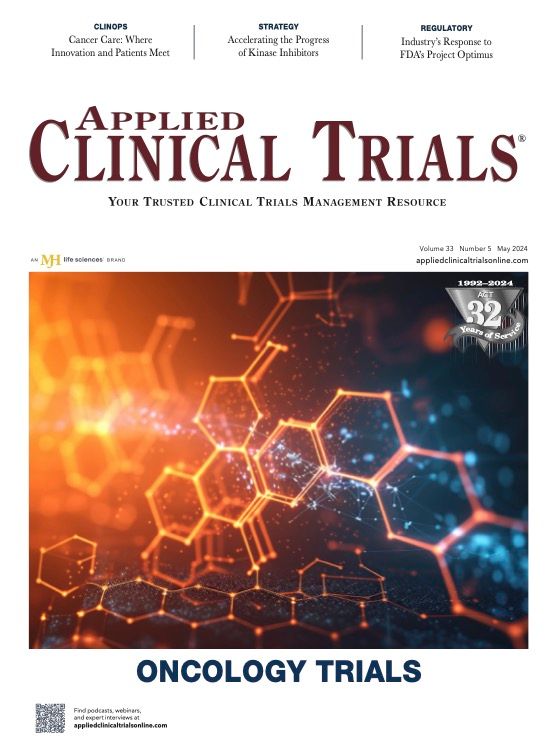Optimizing Drug Development for Solid Tumors: Leveraging Innovative Trial Designs and Advanced Imaging Techniques
How innovative trial designs and advanced imaging modalities can address the challenges of early drug development to optimize outcomes for patients with solid tumors.
Image credit: Juan Gärtner | stock.adobe.com

The landscape of oncology drug development is rapidly evolving, particularly in the realm of solid tumors. With the emergence of immunotherapies and targeted therapies, there is a pressing need for more efficient and effective approaches to clinical trial design and evaluation.
This article explores how innovative trial designs and advanced imaging modalities can address the challenges of early drug development, ultimately optimizing outcomes for patients with solid tumors.
The traditional linear and sequential model of drug development poses significant challenges in the era of immunotherapy and targeted therapy. These challenges include lengthy timelines, high costs, and the inability to make timely go/no-go decisions based on safety and efficacy data.
Additionally, the lack of robust biomarkers hinders patient stratification and personalized treatment approaches. However, there are opportunities to overcome these challenges by adopting innovative trial designs and leveraging advanced imaging modalities.
Seamless adaptive trial designs offer a promising solution to the challenges of traditional trial methodologies. By seamlessly transitioning from Phase I to Phase II within a single protocol, these designs eliminate the delays associated with protocol amendments and trial initiation, accelerating drug development timelines, and reducing costs. Furthermore, adaptive trial designs allow for real-time data analysis and decision-making, enabling sponsors to make informed go/no-go decisions based on evolving safety and efficacy profiles.
Advanced imaging modalities—such as functional magnetic resonance imaging (MRI), positron emission tomography (PET), and digital biomarkers—provide valuable insights into tumor biology and treatment response. Unlike traditional imaging techniques, which rely on anatomical changes, these modalities offer functional and molecular information, allowing for early detection of treatment response and identification of predictive biomarkers. For example, functional imaging can assess changes in tumor metabolism and perfusion, while digital biomarkers can capture subtle physiological changes indicative of treatment efficacy.
A compelling example of the synergistic relationship between innovative trial designs and advanced imaging modalities is the preoperative treatment of squamous cell carcinoma of the head and neck (SCCHN) with afatinib.1 This window of opportunity trial utilized FDG-PET and MRI to assess tumor response to afatinib treatment before surgery. The integration of advanced imaging modalities enabled researchers to evaluate treatment efficacy and safety in real time, informing subsequent clinical development decisions.
In conclusion, optimizing drug development for solid tumors requires a multifaceted approach that integrates innovative trial designs and advanced imaging modalities. By leveraging seamless adaptive methodologies and harnessing the power of advanced imaging, researchers can accelerate the translation of promising therapies from bench to bedside, ultimately improving outcomes for patients with solid cancerous tumors.
About the Author
Ravi Karra, MD, VP of Oncology, Advanced Clinical.
Reference
1. Machiels JP, Bossi P, Menis J, Lia M, Fortpied C, Liu Y, Lhommel R, Lemort M, Schmitz S, Canevari S, De Cecco L, Guzzo M, Bianchi R, Quattrone P, Crippa F, Duprez T, Lalami Y, Quiriny M, de Saint Aubain N, Clement PM, Coropciuc R, Hauben E, Licitra LF. Activity and safety of afatinib in a window preoperative EORTC study in patients with squamous cell carcinoma of the head and neck (SCCHN). Ann Oncol. 2018 Apr 1;29(4):985-991. doi: 10.1093/annonc/mdy013. PMID: 29346507.
About Advanced Clinical: Advanced Clinical is a clinical development and strategic resourcing organization committed to providing a better clinical experience across the drug development journey. Our goal is to improve the lives of all those touched by clinical research – approaching each opportunity with foresight, character, resilience and innovation. Based on decades of experience, we help our clients achieve better outcomes by conducting candid conversations and anticipating potential issues through our customized solutions. Visit our website to learn more: www.advancedclinical.com
